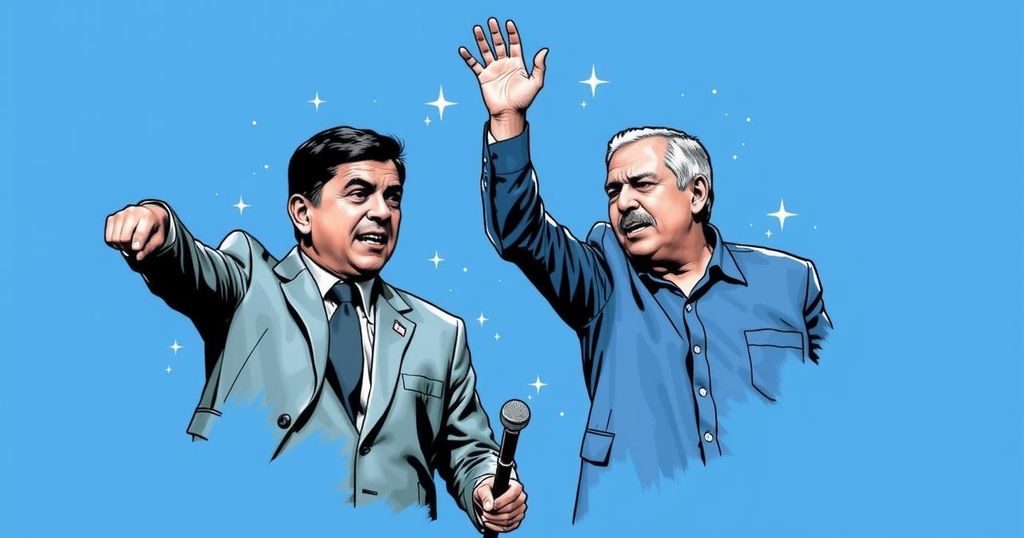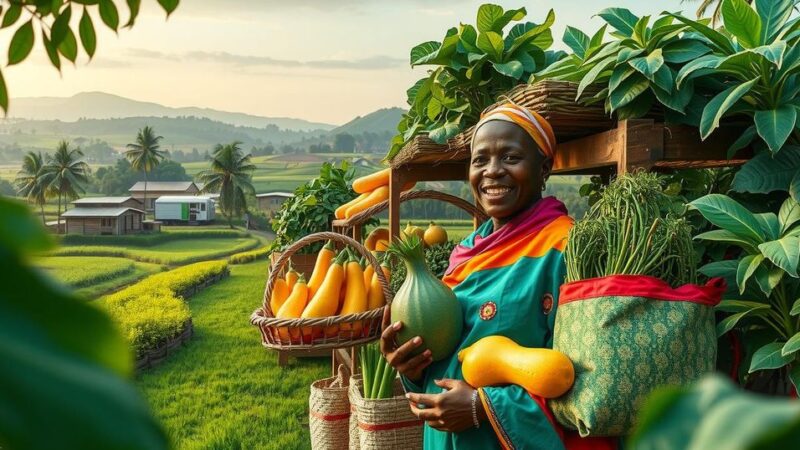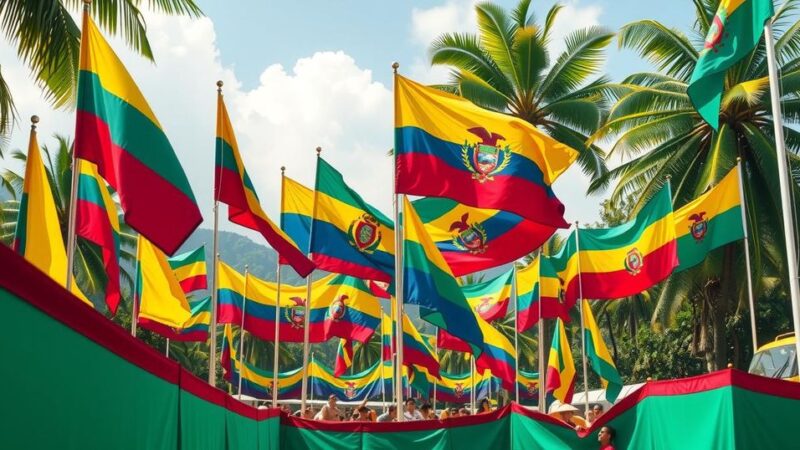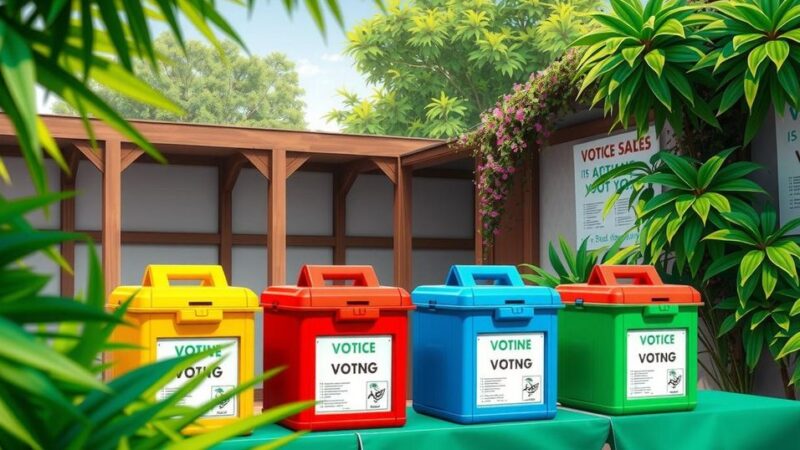Uruguay’s presidential runoff features Álvaro Delgado and Yamandú Orsi locked in a competitive race, reflecting divided voter sentiment on social issues and rising crime. Lackluster campaign efforts have created uncertainty, though analysts note a unique stability in Uruguay’s political climate. The outcome remains unclear as undecided voters hold significant sway in the upcoming election.
The presidential election in Uruguay has transformed into a fiercely contested runoff as voters engage in a second round of electoral decision-making. The candidates vying for the presidency are Álvaro Delgado of the governing conservative party and Yamandú Orsi from the left-leaning Broad Front coalition. Both candidates failed to secure a majority in the initial round of voting, escalating the competition between Delgado, who garnered 27% of the initial vote, and Orsi, who achieved 44%. While the Broad Front previously led the government for 15 years, issues such as economic inequality and rising crime have become focal points in the election, with both candidates offering differing visions for addressing these challenges.
The context surrounding this election reflects Uruguay’s historical political structure and recent shifts. The Broad Front previously enacted progressive policies, including the legalization of abortion and same-sex marriage. In contrast, the current governing coalition has implemented a pro-business agenda under President Luis Lacalle Pou, who currently boasts high approval ratings and strong economic growth. As voters approach the runoff, they grapple with social unrest, escalating violence, and the candidates’ competing promises for law enforcement and economic policies.
While candidates’ campaigns have exhibited a lack of urgency, analysts note that the unique political landscape in Uruguay creates a stable yet nuanced electoral environment. “This is a normal election, which is rare,” remarked Nicolás Saldías, a senior analyst at the Economist Intelligence Unit. There is no prevalent anti-establishment sentiment akin to that observed in other nations, significantly influencing voter expectations and potential outcomes.
Yamandú Orsi, a charismatic candidate and protégé of former President José Mujica, has positioned himself as a unifier within the left, advocating for a moderate approach to economic reforms without overhauling foundational policies. Conversely, Álvaro Delgado emphasizes continuity with the current administration’s stance while aiming to implement tougher crime policies in response to public anxiety regarding safety. As the electorate’s sentiment remains uncertain with a notable number of undecided voters, the outcome of this runoff remains too close to call.
This article discusses the current stage of the presidential election in Uruguay, which has become increasingly competitive with the emergence of two primary candidates, Álvaro Delgado and Yamandú Orsi. The election follows a political landscape shaped by previous governance of the Broad Front coalition and the recent conservative administration led by President Luis Lacalle Pou. Social issues and public safety are at the forefront of this election cycle, influencing voter sentiment and the candidates’ campaign strategies. Analysts note the nuanced nature of the electoral environment, distinguishing it from more tumultuous elections in other nations.
In summarizing the key points of Uruguay’s presidential runoff, it is evident that the political landscape is marked by a close race between Álvaro Delgado and Yamandú Orsi. With an electorate facing pressing social issues and rising crime, voters are motivated by candidates’ proposed policies and the continuity of governance. Analysts suggest that the unique nature of this election, characterized by its lack of extreme discord, reflects Uruguay’s stability and democratic strength. As the runoff approaches, voter engagement and undecided constituents will be crucial in determining the final outcome.
Original Source: www.voanews.com






